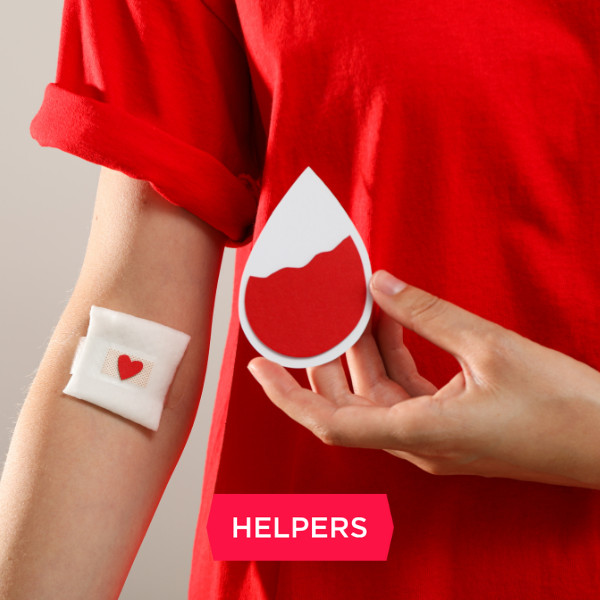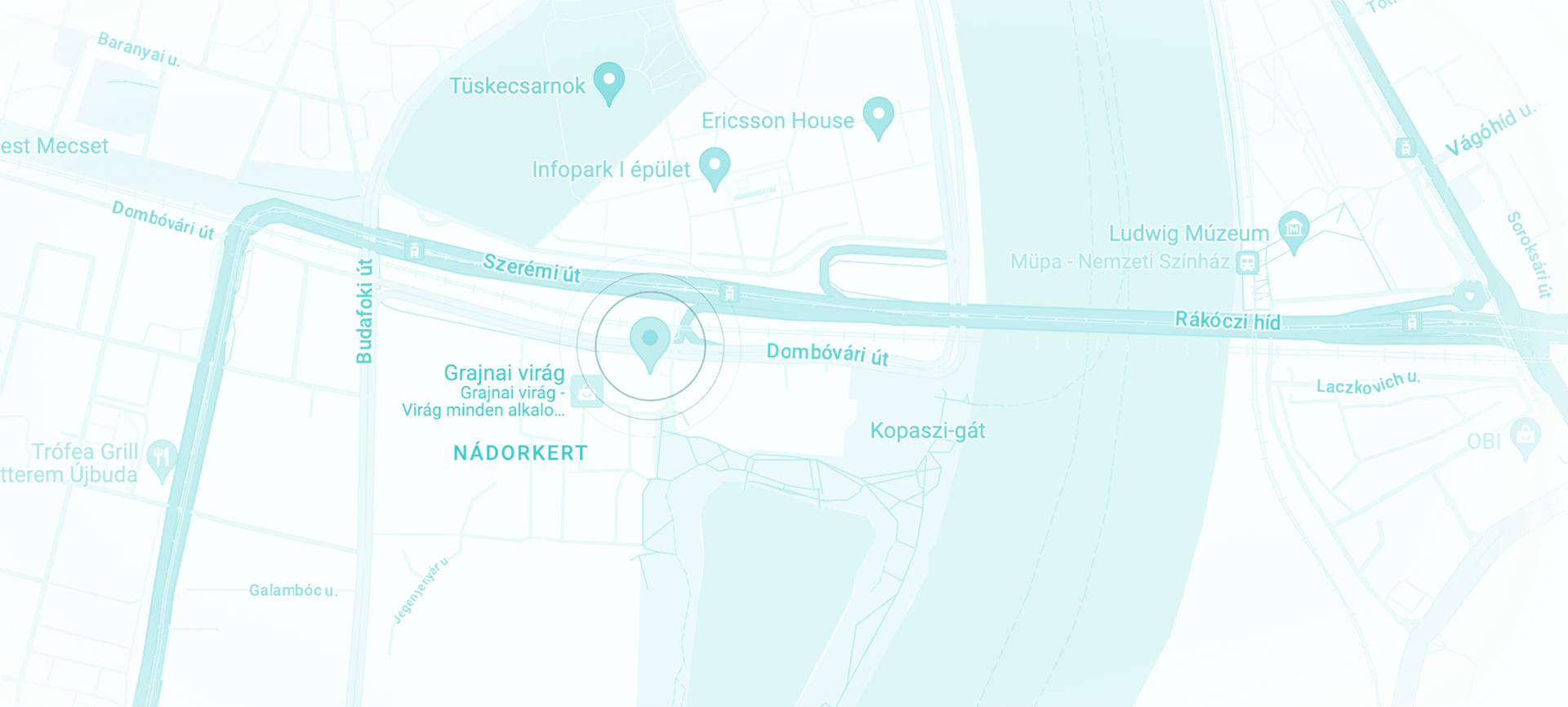
How to donate blood as a foreigner in Hungary?
Blood is indispensable in modern medicine. It cannot be replaced by anything else, so blood donors provide invaluable help to their community. Blood cannot be stored for too long, so it is essential that blood donations remain continuous throughout the year. If you want to donate blood as a foreigner in Hungary, learn the basics here.
Blood is indispensable in modern medicine. It cannot be replaced by anything else, so blood donors provide invaluable help to their community. Blood cannot be stored for too long, so it is essential that blood donations remain continuous throughout the year. If you want to donate blood as a foreigner in Hungary, learn the basics here.
Please note: To donate blood, you will need to fill in forms in Hungarian, so it is best to go together with a friend who speaks the language. Volunteers are not always available to help with this. English speaking personnel is available at the sites operated by the Hungarian National Blood Transfusion Service on days indicated here. Information on the phone in English is available on the first Wednesday of each month at +36.70.686.5486, while on-site English speaking personnel is available on either the second or the third Wednesday of each month. If you need this kind of assistance, make sure to make an appointment on the phone in advance.
This article will tell you:
- Who can become a blood donor
- That you don’t need a Hungarian TAJ number to donate blood in Hungary
- What to expect when you donate blood
- Where to donate blood
- About blood donation in Hungary
Who can become a blood donor in Hungary?
In Hungary, anyone can be a blood donor who is a legally competent, healthy adult. Those who are not Hungarian citizens need to first participate in a preliminary screening. When you first go to donate blood, you will be asked to fill in a detailed survey about your health and then you will be examined by a doctor like everybody else. If you are found eligible, you will be asked to donate only a sample, which will be tested. If any problems are found with the sample, you will be notified by mail; otherwise, you can go and make a blood donation 180 days after the first sample was taken.
The most important requirements for becoming a blood donor are as follows:
- Legally competent
- Healthy
- Between 18 and 66 years (first donors must be under 60)
- Between 50 and 140 kg
In this sense, “healthy” means that you are not feeling ill, you are not displaying symptoms of any known illnesses, you do not have any open wounds, and you have not recently been exposed to any factors that increase health risks. Some typical examples that will be ground for refusal:
- You have got a tattoo or a piercing over the last 4 months
- You have any wounds or animal bites that have not yet fully healed
- You have had a tick removed within the last month
- You have undergone a dental procedure over the last 2 weeks
- You have been detained or kept in custody over the last 4 months
- You have had sex with a high-risk partner over the last 6 months (even if you used a condom)
Men are allowed to donate blood at most 5 times a year, women only 4 times; for both, at least 56 days must pass between donations. Additionally, it is not recommended for women to donate blood during their period. Women are not allowed to donate blood during pregnancy and in the following 6 months; they can first donate 3 months after they finish nursing their babies.
| FUN FACT: The first day you can donate blood after your last donation is called your pelican day in Hungary. The pelican is the patron animal of blood donation. In Christian lore, the pelican was thought to be a bird that fed its offspring with its own blood since the late antiquity, and it was a prevalent Christian image throughout medieval times. |
Do you need a Hungarian TAJ number to donate blood in Hungary?
No, you don’t! You will need a document with a social security number, but it can be from your country of origin, meaning any other country, both EU and third countries. In line with this, you will need the following documents to donate blood:
- An ID that has your photo (ID card, passport, driver’s license; must have Latin script and needs some kind of registration number on it)
- Your TAJ card or any other national social security ID
- Your address document (can be a Hungarian address card or accommodation slip, or any equivalent foreign document)
- A Hungarian address: if you don’t have a permanent address in Hungary, you still need a Hungarian address where you can receive a notification if your pre-screening is flagged
What to expect when you donate blood in Hungary?
The blood donation process will take about an hour, out of which the blood draw will take 5-15 minutes. You should eat and drink plenty of fluids before the donation; at many locations, you will be given a snack and a bottle of water that you should eat and drink while you wait for your turn.
Upon arrival, you will be given a long questionnaire to fill in about your health and the medications you take. This screens for conditions that would risk either your health or the recipient’s, so make sure to answer the questions honestly. Then a doctor will see you; they will check the questionnaire and perform an examination which will include taking a small blood sample from your fingertip with a needle. If this is your first time giving blood, your blood type will be determined.
If you are a foreigner and this is your first time donating blood in Hungary, they will take only a small sample of your blood, which will be tested thoroughly. Otherwise about 450 ml (±10%) of blood is taken, some in a separate, smaller sachet for testing. Sometimes you might be asked to allow an additional amount to be drawn for research purposes.
After the blood draw, you might be asked to stay put for 5-15 minutes so you will not faint from the sudden blood loss. During the rest of the day, make sure you rest as much as you can, and drink plenty of fluids. Leave the bandage on for at least 4 hours. Do not do any sports, heavy lifting, or anything that is physically exhausting or requires concentration, like operating heavy machinery (if your job is like that, you will be asked to donate blood after your shift or on a rest day).
A proof of participation will be uploaded to EESZT within a week after the event – you might need it e.g. for a work exemption. If you do not have a Hungarian social security number but need a proof of attendance, ask about it before or after you make the donation, or send a message to the National Blood Transfusion Service here. Blood is always tested for Hepatitis B, Hepatitis C, Syphilis, and HIV; if you are tested positive, you will get a letter at the Hungarian address you provided.
Where to donate blood in Hungary?
Blood donation in Hungary is organized by the Hungarian Red Cross since 1939, and it is done in cooperation with the National Blood Transfusion Service (Országos Vérellátó Szolgálat, OVSZ) since 2000. The regional centers operated by OVSZ are typically open on working days from 7 am to 7 pm. On any given working day, there are 60-70 locations available throughout Hungary, while there are a total of 15,000 locations where blood donation events are organized yearly.
To find a location, it is best to check the location search at the OVSZ website. There is also a Véradás app created for this purpose, available both on Google Play and in the App Store. If you are not going to a regional center, it is best to book an appointment so the organizers can see how many people to expect and how many assistants to employ for the day.
About blood donation in Hungary
Hungarian healthcare needs about 390,000 units of blood every year for safe operation, which is provided by 240,000 donors. To maintain a safe blood reserve, about 1,600-1,800 donations are required daily. Every year, about 55,000 people donate blood for the first time in their lives in Hungary. If you can give blood even once a year, that will already be a significant contribution to the health of your community.
The most common blood type in Hungary is A, while the rarest is AB. This is not the case everywhere in the world, e.g. in the U.S. and the UK the most common blood type is O+. The blood types with the lowest reserves in Hungary are usually O- and AB-; you can check the current reserves online here. The number of donors is lowest in summer, when most people take their annual leaves, and during the winter holidays.
November 27 is the Day of Blood Donors in Hungary since 1988, although awards to donors have regularly been presented on this day since 1954. The date was chosen because the Hungarian Red Cross was founded on this day in 1881. On the international level, World Blood Donor Day is celebrated on June 14 since 2004. This is the birthday of Karl Landsteiner, the Austrian physician who first discovered the ABO blood types in 1901.
Contact
Contact us today
Monday - Friday
9am - 5pm CET
Helpers Hungary Kft
Budapart Gate
Dombóvári út 27
Budapest 1117, Hungary
If you’re visiting us, please use entrance A and come to the 2nd floor.






